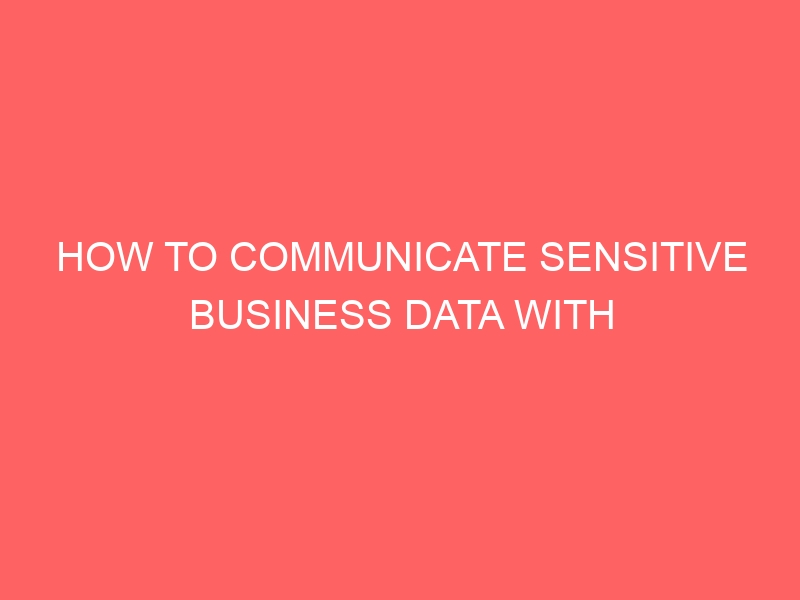Businesses rely on the data they collect to be successful. From customer databases and supplier costs, to profit margins and marketing strategies, information is vital for any industry. Voice over Internet Protocol (VoIP) is an IP telephony technology that allows phone calls to be made using the internet, instead of a fixed landline.
Many businesses use VoIP to communicate sensitive company information, and with cyberattacks on the rise, there are plenty of security threats to look out for. Here are ways that you can securely communicate sensitive business information using a VoIP system.
Virtual Private Networks (VPNs)
VPNs are very popular and most businesses already have one in place to manage internal communication and traffic over their private network. This technology is relatively affordable and easy to install and is a great option for securing sensitive business data on VoIP phone systems.
VPNs assist to manage various transactions over the internet including online banking and is one of the more secure technologies that many companies choose.
Deep Packet Inspection (DPI)
The most important part of installing a VoIP system is that a professional is hired. DIY jobs are the easiest targets against cyberattacks. Most VoIP providers have an additional security mechanism called the DPI, which inspects information about incoming calls before it enters the network and blocks any potential security threats.
DPI is also beneficial in peer-to-peer (P2P) settings as it can improve network performance and give a clearer call without any line noise.
Multiprotocol Label Switching (MPLs)
This technology works by separating different streams of traffic on a network. Similar to VPNs but more robust and secure, MPLs allocate bandwidth according to higher priority lines. This allows for a higher quality call to be made and more important business calls to be allocated more bandwidth where necessary.
MPLs offer additional security for sensitive business data communication and are a cheap alternative to most traffic routing software.
Encryption & Authentication
Two-step authentication is a common security feature we see in our cell phones, email accounts, and banking apps. It adds an extra layer of security above the standard username and password by using a secondary authentication protocol to confirm the caller’s identity. You can also install a 3-step process called the Challenge-Handshake Authentication Protocol (CHAP) for the third layer of security.
Encryption, although not a heavily secure feature, still offers some protection and should be installed as the initial mechanism in place for VoIP phone systems. The idea with encryption is that if someone was able to steal your business’ data, they wouldn’t be able to access it, rendering it useless to unskilled hackers.
When VoIP was first released there were no security threats to worry about. The only concern was that a reliable and cost-effective way to communicate was available for businesses and home users. As the use of the internet increased and more businesses went online, cyberattacks have been a common occurrence to gain access to sensitive company information. With these security mechanisms in place, you can increase the level of protection for any VoIP phone call system.











Leave a Reply